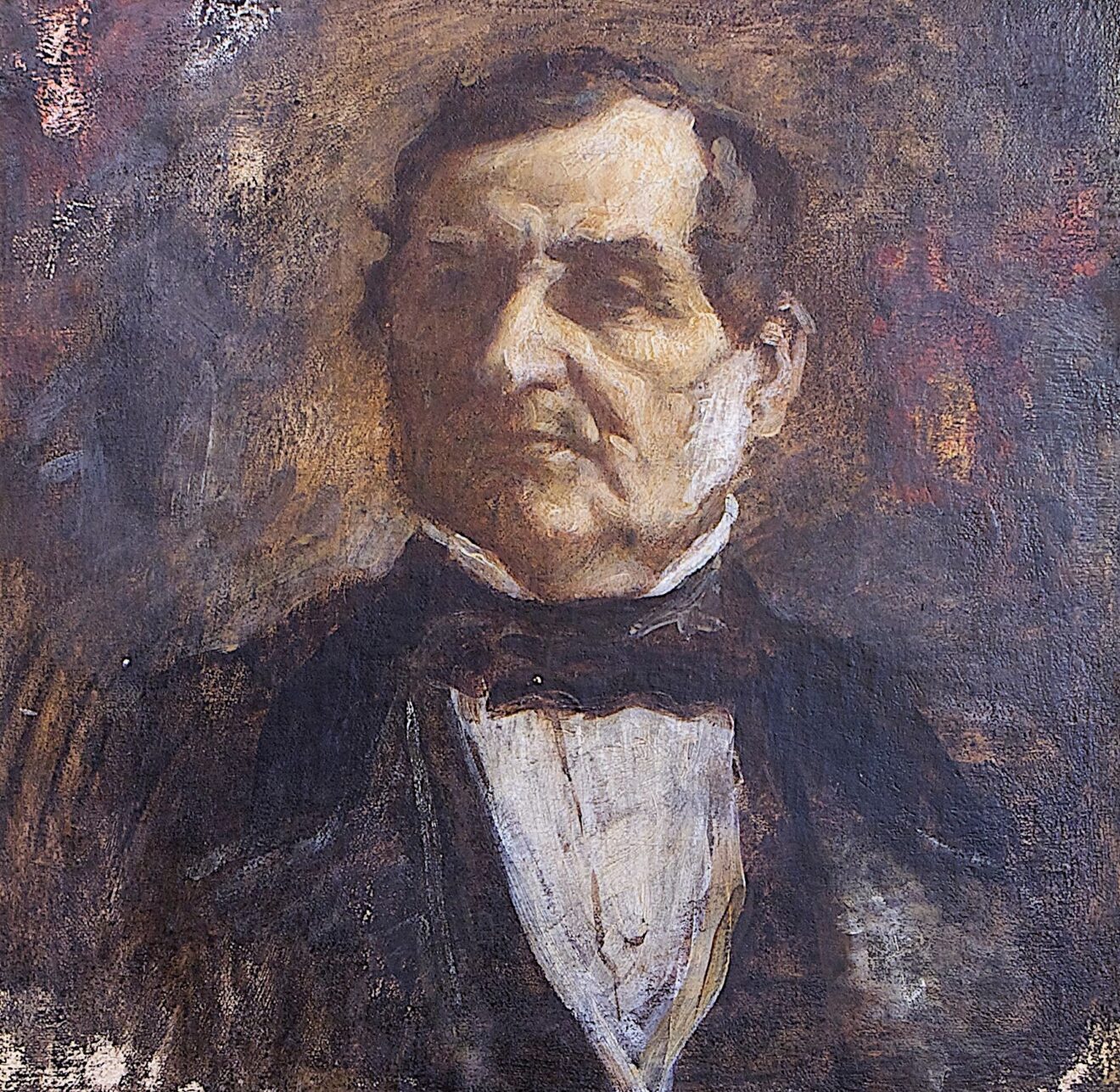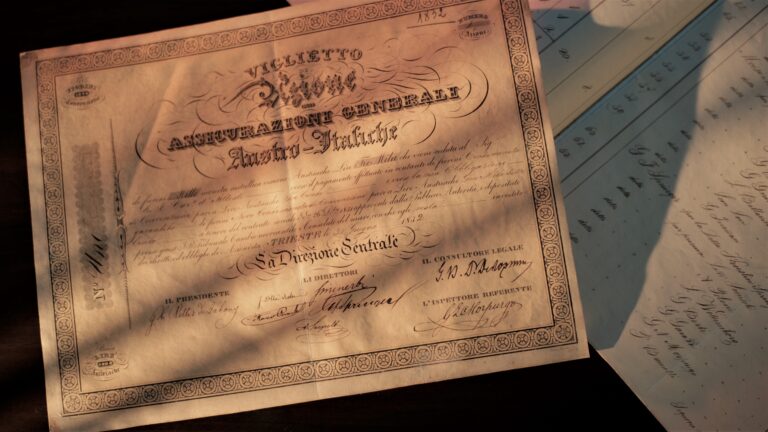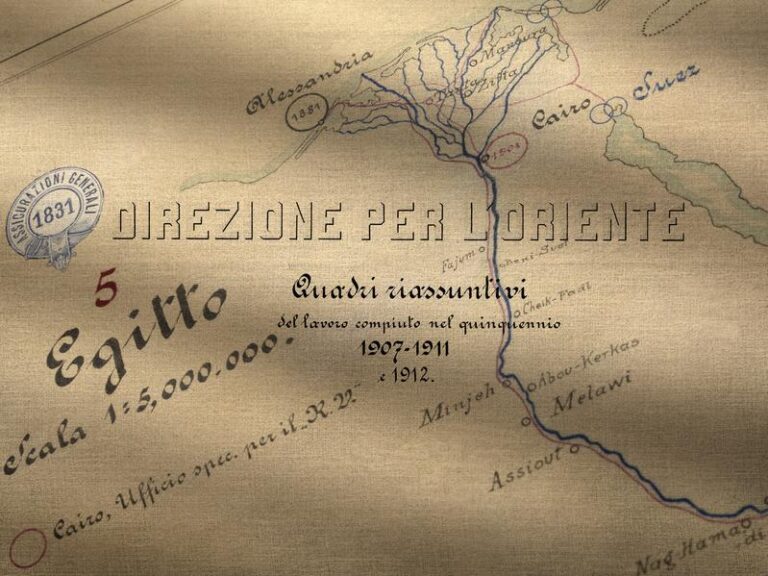Pasquale Revoltella – Generali’s Visionary Businessman
21 July 2023
Historical Archive Generali
In many ways, Pasquale Revoltella personified the spirit of 19th century in Trieste: its raison d’être grounded firmly in maritime trade, its secular middle class committed to commerce.
The city’s defining moment came in 1719, when it was given Imperial Free Port status by Charles VI. Following the decline of Venice, it became the maritime and commercial hub of the Habsburg Empire. A city of religious liberty and limitless opportunity, of which Revoltella was a product.
A self-made man, he rose from poverty to become a successful merchant, banker, and prominent financial expert, on the board of directors of two of the most dominant business enterprises in all of Austria: Assicurazioni Generali and the Österreichischer Lloyd shipping company.
He was born in Venice in 1795 to a family of modest meat traders which were relocated to Trieste in 1797, two years after his birth. In 1816, following a brief stint working in a warehouse, he took a job at the business firm owned by the Swiss consul Teodoro Necker, where he would spend the best part of a decade. He then opened his own business and quickly succeeded in making his fortune and improving his standing in the city.
Pasquale Revoltella’s fortune and standing rose further with the launch in 1835 of a grain and timber import company, which gave him access to positions in many Triestine companies. Holding six shares, he was among the first shareholders in Generali, and in 1837 he became a director of the company, a position he would continue to hold until his death. This position was of particular importance between 1835, when the first president of Generali resigned, and 1909, when the institutional void was filled.
At the same time, he was also on the board of directors of Österreichischer Lloyd, where he developed a close relationship with Baron Karl Ludwig von Bruck, a co-founder and the president of the shipping company as well as a future Austrian minister of commerce and finance.
But the most ambitious project in his life remained his involvement in the construction of the Suez Canal. He recognised the potential in the idea of connecting the Mediterranean Sea and the Red Sea and the enormous benefits for commercial maritime shipping destined for Trieste and the Habsburg Empire. From 1859, when the French diplomat Ferdinand de Lesseps organised the establishment of the Compagnie Universelle du Canal Maritime de Suez, Revoltella was an active part of this great undertaking. Despite acting on behalf of Austria, he was able to invest an enormous sum of his personal capital into the project – so much that he was appointed vice-president of the company.
The opening of the Suez Canal was his dream, a key cog in his vision of developing and promoting Trieste and its port.
The entire “Triestine system”, in constant economic and demographic development since it was granted the Imperial Free Port status by Emperor Charles VI, benefitted from the project. People and capital from around the Balkans and the Mediterranean, from Austria and Central Europe, were drawn to Trieste by its position as an economic and commercial intermediary of the highest order. With the opening of the Suez Canal, Generali expanded its global markets: from the eastern Mediterranean to North Africa, and to the greatest ports in the Far East and the Americas.
In 1864, following the publication of his research entitled, On the Participation of Austria in Global Commerce, he was elected to the commission tasked with studying the development of Triestine trade.
A man of great initiative and extraordinary energy, his influence could be felt across every aspect of Trieste’s commercial and industrial life. He was made a baron in 1867, and already a generous patron during his lifetime, upon his passing he left all of his notable wealth to the Comune of Trieste for charity projects, and it was allocated to the creation of the Superior School of Commerce that took his name and that today has become the University of Trieste.
Revoltella died on September 8, 1869, two months before the Suez Canal was officially inaugurated.
Following his passing and upon his request, his private residence was converted “for the exclusive use of an institute of fine arts”, which would bear “the permanent name of Museo Revoltella“; the last of his many acts of generosity to the city that allowed him to become “Baron” Pasquale Revoltella.
For more information, see A. MILLO, Pasquale Revoltella, in Generali in History: Tales from the Archive. 19th century, Venice, Marsilio, 2016, pp. 206-211.



